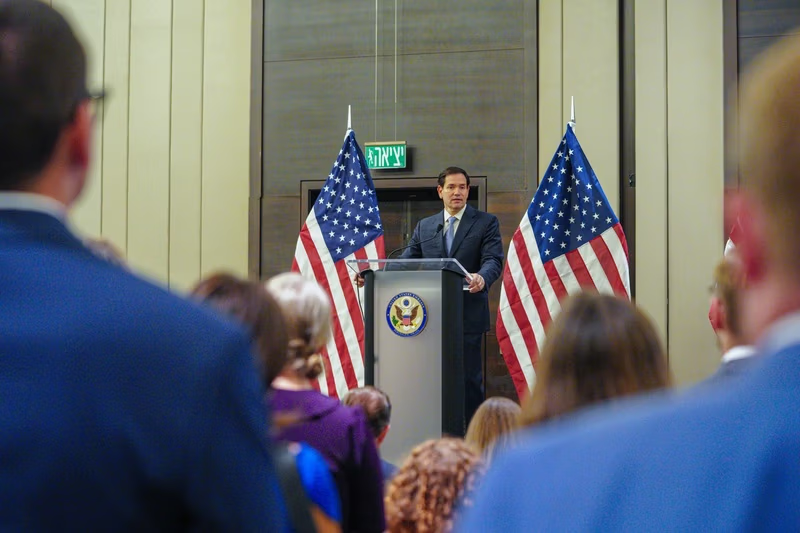US Secretary of State Marco Rubio has accused Hamas of stealing humanitarian aid intended for civilians in Gaza, calling the group an “impediment” to peace and urging its disarmament to enable the implementation of President Donald Trump’s Gaza Peace Plan. Rubio’s remarks, shared on social platform X, came alongside a Pentagon video that allegedly shows Hamas operatives looting an aid truck, highlighting growing tensions within the ceasefire framework between Israel and Hamas.
Hamas continues to deprive the people of Gaza of the humanitarian aid they desperately need. This theft undermines international efforts in support of President Trump’s 20 Point Plan to deliver critical assistance to innocent civilians.
— Secretary Marco Rubio (@SecRubio) November 1, 2025
Hamas is the impediment. They must lay… https://t.co/ilTnDiV5Vi
“Hamas continues to deprive the people of Gaza of the humanitarian aid they desperately need. This theft undermines international efforts in support of President Trump’s 20-Point Plan to deliver critical assistance to innocent civilians,” Rubio stated. He added, “Hamas is the impediment. They must lay down their arms and stop their looting so that Gaza can have a brighter future.”
According to a statement from the US Central Command (CENTCOM), footage from an American MQ-9 drone observed suspected Hamas members attacking an aid convoy driver in northern Khan Younis before stealing the truck. “Over the past week, international partners have delivered more than 600 trucks of commercial goods and aid into Gaza daily. This incident undermines these efforts,” CENTCOM said, noting that nearly 40 nations and international organizations are coordinating through the US-led Civil-Military Coordination Center (CMCC) to facilitate humanitarian, logistical, and security assistance to Gaza.
The Pentagon’s release underscores rising US frustration over the delivery of aid in Gaza, as Washington seeks to maintain stability amid fragile ceasefire conditions. Rubio’s remarks also align with the Trump administration’s renewed diplomatic push to advance its Middle East peace framework, positioning US involvement as central to rebuilding efforts and regional security alignment with Israel and key Arab states.
In a parallel development, Israel on Saturday confirmed that the remains of three individuals handed over by Hamas to the Red Cross were not those of any Israeli hostages, marking another setback in US-brokered ceasefire efforts. The exchange followed Israel’s handover of 30 Palestinian bodies a day earlier, completing a humanitarian swap after two hostages’ remains were previously returned. Israeli Prime Minister Benjamin Netanyahu’s office said that the identities of the three individuals remain unknown, while Hamas’ armed wing claimed the transfer was intended “to stop the claims of Israel,” citing challenges in identification due to a lack of DNA testing kits in Gaza.
The current phase of the Israel-Hamas conflict remains the deadliest in the region’s modern history. The 2023 Hamas-led attack on Israel killed around 1,200 people and resulted in 251 hostages being taken, according to Israeli figures. The ensuing Israeli military campaign, according to Gaza’s Health Ministry, has led to more than 68,600 deaths, though Israel disputes those figures and has rejected genocide allegations raised by UN investigators.
As Washington renews its diplomatic and military coordination through CENTCOM and regional allies, the incident underscores the broader geopolitical challenge of enforcing ceasefire terms, securing aid delivery, and balancing humanitarian imperatives with security objectives. For global markets, the continued volatility in the Middle East adds a layer of uncertainty to energy and trade flows, particularly as the US administration seeks to stabilise the region ahead of the 2026 policy review under the Trump administration’s foreign policy framework.






